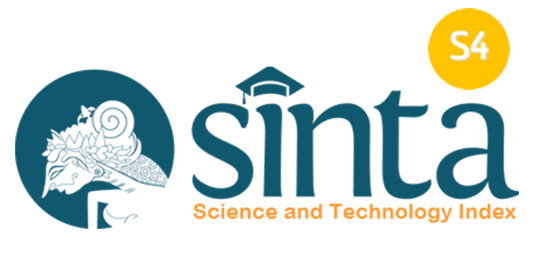FAMILY HEALTH HISTORY CONFIRMED POSITIVE COVID-19 DURING SELF ISOLATION
Downloads
Introduction: Coronavirus or the so-called Severe Acute Respiratory Syndrome Coronavirus 2 (SARS-COV2) is a virus variant that was newly discovered in December 2019, in Wuhan China, and is the cause of the infectious disease Coronavirus Disease-2019 (COVID-19). This virus can infect all ages and manifests mild to severe symptoms, and can even cause death. Until now, various efforts have been made to prevent the spread of COVID-19, including the government's policy to self-isolate for people infected with COVID-19 who have mild symptoms. During self-isolation, different health problems may arise for each person. Mental health is very necessary to support physical health during isolation. Method: The method used is a qualitative method, a case study on five family members who were confirmed positive for COVID-19 by describing the health history of each individual. Results: In this study, researchers will use both data analysis techniques, namely quantitatively to synthesize research results with a quantitative approach, for example, Cohort Study or Case-Control Study, Cross Sectional Study, Prospective Study / cohort, Retrospective Study, Rapid Review, Observational Study and qualitatively to synthesize (summarize) the results of the descriptive qualitative research. Conclusions: Isolation independent by someone or group of people with mild COVID-19 symptoms. Isolation independent could walk with good if needs base fulfilled and have good mental health.
Brooks, S. K., Webster, R. K., Smith, L. E., Woodland, L., Wessely, S., Greenberg, N., & Rubin, G. J. (2020). The psychological impact of quarantine and how to reduce it: rapid review of the evidence. The Lancet, 395(10227), 912–920. https://doi.org/10.1016/S0140-6736(20)30460-8
Coping with Stress. (n.d.). Retrieved October 25, 2021, from https://www.cdc.gov/mentalhealth/stress-coping/cope-with-stress/
Erlina Burhan, Agus Dwi Susanto, Sally A Nasution, Eka Ginanjar, Ceva Wicaksono Pitoyo, Adityo Susilo, Isman Firdaus, Anwar Santoso, Dafsah Arifa Juzar, Syafri Kamsul Arif, Navy G.H Lolong Wulung, Triya Damayanti, Wiwien Heru Wiyono, Prasenohadi, Afiatin, T. C.-19 I. (2020). Protokol Tatalaksana Covid-19. 1.
Felicia, F. V. (2020). Manifestasi Klinis Infeksi COVID-19 pada Anak. Cermin Dunia Kedokteran, 47(6), 420–423. http://www.cdkjournal.com/index.php/CDK/article/view/774
IDAI. (2020). Panduan Klinis Tata Laksana COVID-19 Pada Anak. Indonesian Pediatric Society, 33.
Kemenkes RI. (2020). SE_MENKES_202_2020_protokol_isolasi_diri_COVID.pdf (pp. 1–4). https://covid19.kemkes.go.id/download/SE_MENKES_202_2020_protokol_isolasi_diri_COVID.pdf
Kementerian Kesehatan Republik Indonesia. (n.d.-a). Retrieved September 29, 2021, from https://www.kemkes.go.id/article/view/20031600011/pertanyaan-dan-jawaban-terkait-covid-19.html
Kementerian Kesehatan Republik Indonesia. (n.d.-b). Retrieved September 13, 2021, from https://www.kemkes.go.id/
Kementerian Kesehatan Republik Indonesia. (n.d.-c). Retrieved October 12, 2021, from https://www.kemkes.go.id/article/view/20101700001/begini-alur-pelayanan-pasien-covid-19.html
Kementerian Kesehatan Republik Indonesia. (2021). Keputusan Menteri Kesehatan Republik Indonesia Nomor Hk.01.07/Menkes/4641/2021 Tentang Panduan Pelaksanaan Pemeriksaan, Pelacakan, Karantina, Dan Isolasi Dalam Rangka Percepatan Pencegahan Dan Pengendalian Coronavirus Disease 2019 (Covid-19) Dengan. KMK/ Nomor HK ,01,07/MENKES/4641/2021, 169(4), 308–311.
Matias, T., Dominski, F. H., & Marks, D. F. (2020). Human needs in COVID-19 isolation. Journal of Health Psychology, 25(7), 871–882. https://doi.org/10.1177/1359105320925149
Moreno, C., Wykes, T., Galderisi, S., Nordentoft, M., Crossley, N., Jones, N., Cannon, M., Correll, C. U., Byrne, L., Carr, S., Chen, E. Y. H., Gorwood, P., Johnson, S., Kärkkäinen, H., Krystal, J. H., Lee, J., Lieberman, J., López-Jaramillo, C., Männikkö, M., ... Arango, C. (2020). How mental health care should change as a consequence of the COVID-19 pandemic. The Lancet Psychiatry, 7(9), 813–824. https://doi.org/10.1016/S2215-0366(20)30307-2
Pikobar - Pusat Informasi dan Koordinasi COVID-19 Jawa Barat. (n.d.). Retrieved September 13, 2021, from https://pikobar.jabarprov.go.id/
Shen, K., Yang, Y., Wang, T., Zhao, D., Jiang, Y., Jin, R., Zheng, Y., Xu, B., Xie, Z., Lin, L., Shang, Y., Lu, X., Shu, S., Bai, Y., Deng, J., Lu, M., Ye, L., Wang, X., Wang, Y., & Gao, L. (2020). Diagnosis, treatment, and prevention of 2019 novel coronavirus infection in children: experts' consensus statement. World Journal of Pediatrics, 16(3), 223–231. https://doi.org/10.1007/s12519-020-00343-7
The Lancet Infectious Diseases. (2020). The intersection of COVID-19 and mental health. The Lancet Infectious Diseases, 20(11), 1217. https://doi.org/10.1016/S1473-3099(20)30797-0
Wahab, S., Ahmad, M. F., Hussain, A., Usmani, S., Shoaib, A., & Ahmad, W. (2021). Effectiveness of Azithromycin as add-on Therapy in COVID-19 Management. Mini-Reviews in Medicinal Chemistry, 21. https://doi.org/10.2174/1389557521666210401093948
WHO. (2021). WHO Indonesia | World Health Organization. WHO. https://www.who.int/indonesia
Xiang, Y. T., Yang, Y., Li, W., Zhang, L., Zhang, Q., Cheung, T., & Ng, C. H. (2020). Timely mental health care for the 2019 novel coronavirus outbreak is urgently needed. The Lancet Psychiatry, 7(3), 228–229. https://doi.org/10.1016/S2215-0366(20)30046-8
Copyright (c) 2022 Lia Nurliani, Andria Pragholapati

This work is licensed under a Creative Commons Attribution 4.0 International License.
Copyright Notice
1. The journal allows the author to hold the copyright of the article without restrictions.
2. The journal allows the author(s) to retain publishing rights without restrictions.
3. The legal formal aspect of journal publication accessibility refers to Creative Commons Attribution (CC BY).














